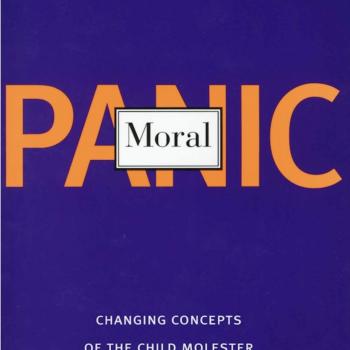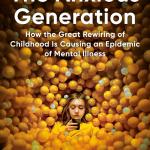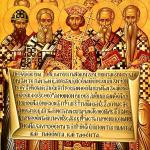The two centuries or so before Jesus’s time were a wildly productive era in terms of Jewish thought. It is in this time for instance that we find the full development of such ideas as Satan and angels, the afterlife and the apocalypse. I have been pursuing one concept in particular that would have enormous consequences for Christian thought, namely the hereditary taint of original sin traceable to Adam’s Fall. It’s a tough quest, and we must follow a route that is, well, serpentine.
The basic story is very familiar – Eden, Adam and Eve, the serpent – and in Romans and 1 Corinthians, St. Paul makes it fundamental to Christian theology. Those ideas were developed by Irenaeus in the second century, and put in definitive form by Augustine in the early fifth.
The problem is that, after its appearance in Genesis 1-3, the story makes no impact in the Hebrew Bible. Ancient Hebrews were thoroughly familiar with the concept of sin, which could be collective or hereditary, but we just do not find the idea that Adam’s disobedience corrupted humanity as a whole. It does not feature, for instance, in the words of prophets who had no problem whatever in denouncing the manifold sins of a community. Although some Talmudic scholars favored the notion, it never became part of Judaism.
As God’s garden, Eden is mentioned by several prophets, especially Ezekiel, but never in the context of the Fall.
Nor does the Eden/original sin theory feature in the New Testament, outside Paul’s own writings (most explicitly in 2 Cor.11).
With other early Christian themes, I would have expected the theory to become popular in “inter-testamental” times, say in the third and second centuries BC, before emerging fully in New Testament times. It doesn’t, or at least not explicitly. Tobit (8.6: third century) lauds God, “Thou madest Adam and gavest him Eve his wife as a helper and support. From them the race of mankind has sprung.” But the theological framework is thin.
The literature of that earlier era is indeed fascinated by the origins of humanity, the sources of human sinfulness, and temptations by diabolic forces; but the Biblical passage under discussion is usually Genesis 6, the story of the Watchers. The “Fall” in question is thus Noah’s Flood, rather than the expulsion from Eden. That is the emphasis of 1 Enoch, followed by Jubilees.
But here is a paradox. If the classic Christian interpretation of the Fall was not in view, individual actors in the drama certainly were. I have already discussed the “rise of Satan” from the third century onwards. Meanwhile, Adam himself was rising from near-total obscurity in the Bible to play a critical role in Jewish thought and writing. Like Satan too, he was becoming a fully-developed character.
Look long and hard in the Hebrew Bible, after the early sections of Genesis, and you will not find Adam (or Eve). Yet not long after 200BC, Sirach (Ecclesiasticus) ch. 49.14-16 includes this startling line:
No one like Enoch has been created on earth, for he was taken up from the earth. … Shem and Seth were honored among men, and Adam above every living being in the creation.
Very much like his foe Satan, and at just the same time, Adam was entering center stage in Jewish thought.
I’ll explore this more in a future post.
















